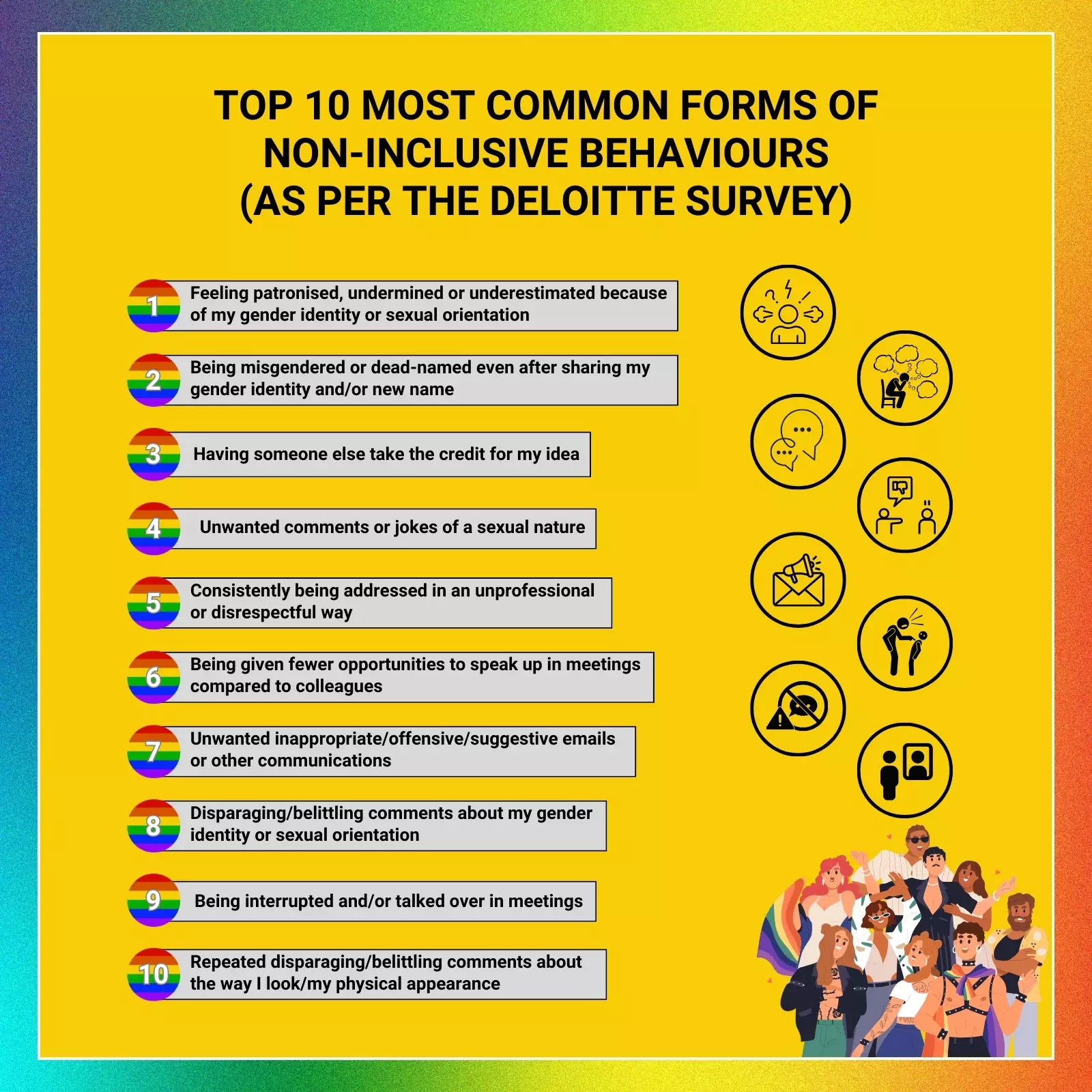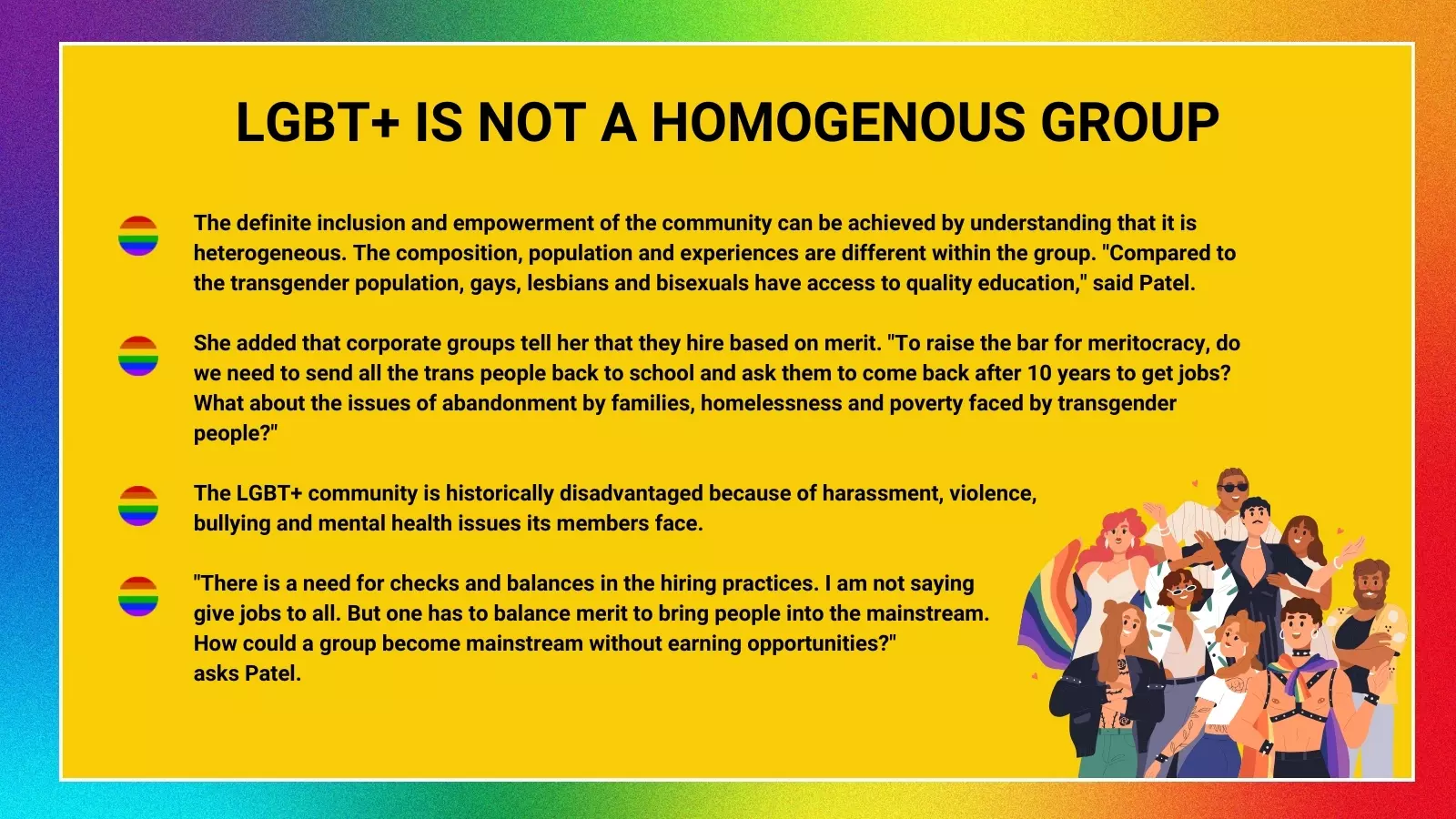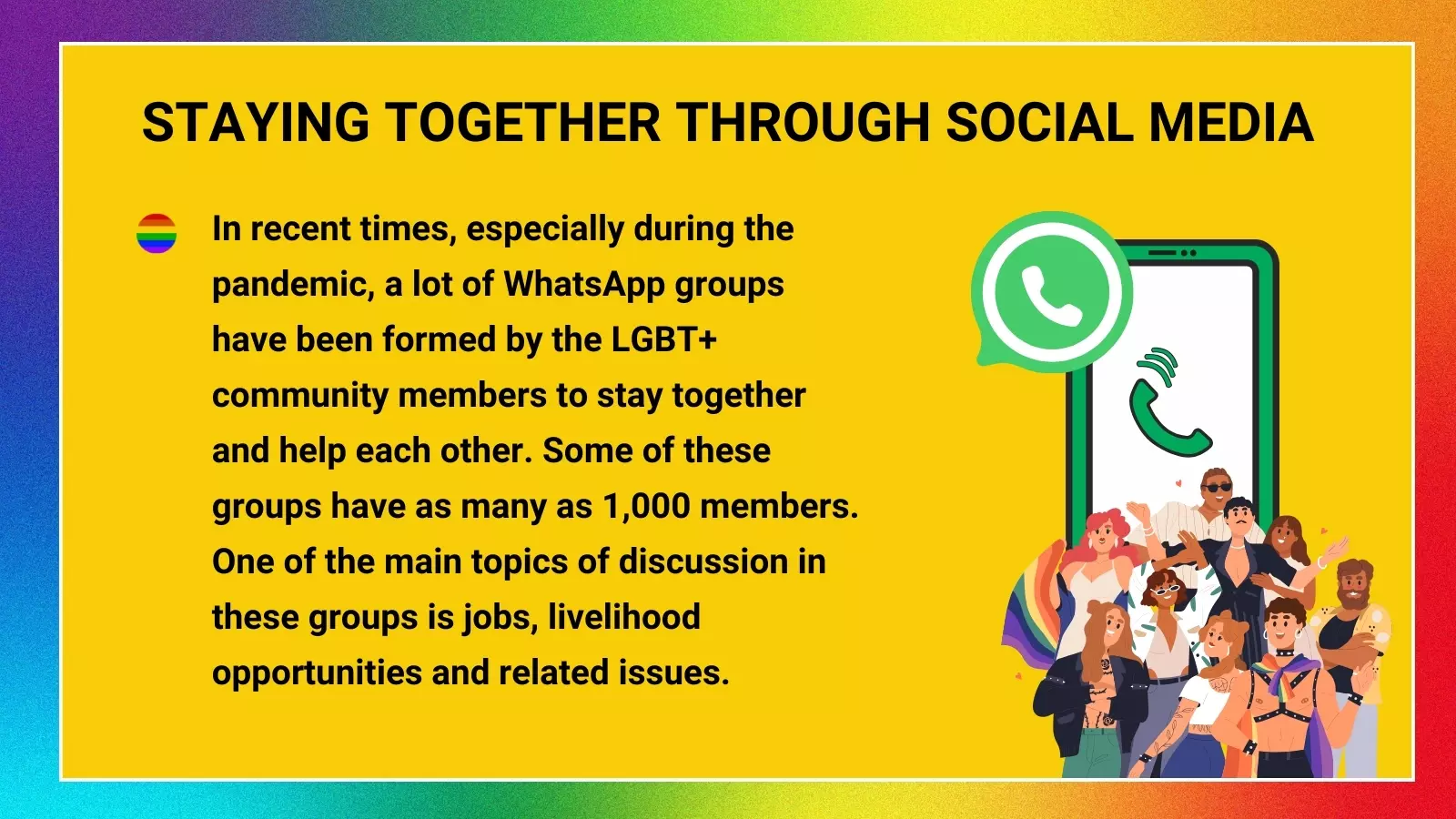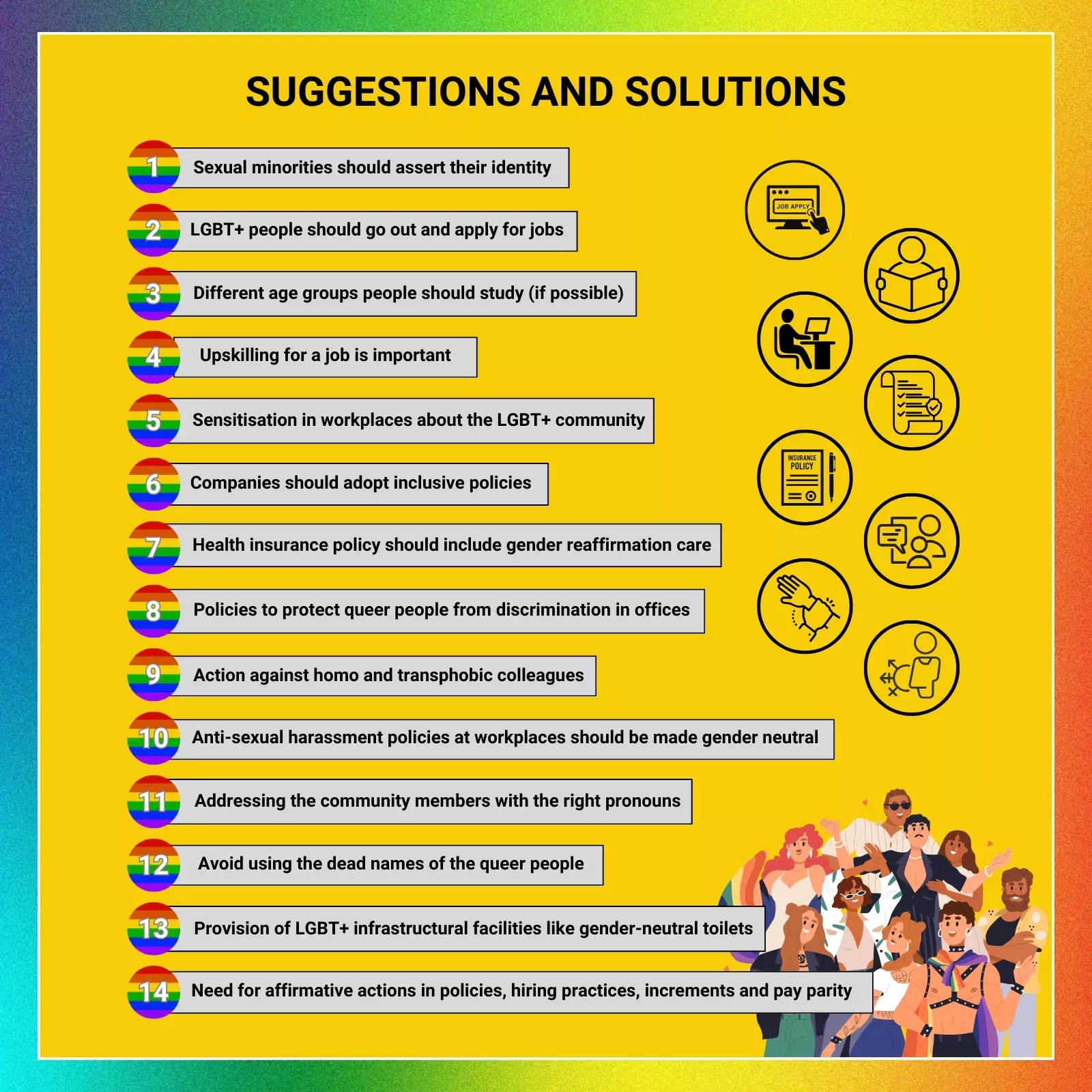
- Home
- India
- World
- Premium
- THE FEDERAL SPECIAL
- Analysis
- States
- Perspective
- Videos
- Sports
- Education
- Entertainment
- Elections
- Features
- Health
- Business
- Series
- In memoriam: Sheikh Mujibur Rahman
- Bishnoi's Men
- NEET TANGLE
- Economy Series
- Earth Day
- Kashmir’s Frozen Turbulence
- India@75
- The legend of Ramjanmabhoomi
- Liberalisation@30
- How to tame a dragon
- Celebrating biodiversity
- Farm Matters
- 50 days of solitude
- Bringing Migrants Home
- Budget 2020
- Jharkhand Votes
- The Federal Investigates
- The Federal Impact
- Vanishing Sand
- Gandhi @ 150
- Andhra Today
- Field report
- Operation Gulmarg
- Pandemic @1 Mn in India
- The Federal Year-End
- The Zero Year
- Science
- Brand studio
- Newsletter
- Elections 2024
- Events
Queer precarity: How urban, educated LGBT+ navigate homophobia at workplace

Ashish Chopra dons many hats. The 29-year-old from Bengaluru is a successful entrepreneur, works in a global tech firm and is an activist. He has other achievements under his belt but more on that later.It’s a busy life for sure and he loves all his work. Chopra, however, wishes that people (most of them) — in his personal and professional life — break free of their biases, dogmas and...
Ashish Chopra dons many hats. The 29-year-old from Bengaluru is a successful entrepreneur, works in a global tech firm and is an activist. He has other achievements under his belt but more on that later.
It’s a busy life for sure and he loves all his work. Chopra, however, wishes that people (most of them) — in his personal and professional life — break free of their biases, dogmas and fears and not be prejudiced towards him because of his sexuality. Chopra identifies himself as a gay man and won the first runner-up title at Mr Gay India 2018.
In one of his previous jobs at an IT company, Chopra, who currently works as a talent sourcer at Google, faced snide remarks and discriminatory behaviour from his colleagues. “I was told that it is unprofessional to colour my hair and wear ripped jeans and heels. I was told it would hurt job aspirants as I was a recruiter. I felt that the candidates would feel safe to be themselves. Someone once asked me if I was transgender. I was left wondering why it is important for them to discuss my sexuality, especially in the workplace,” Chopra told The Federal.

It is because of repeated disparaging and belittling comments that the management never cared to address, Chopra left that job.
There are instances when homo/transphobia and bullying at workplaces force people to quit their jobs, especially when they are open about their gender and sexual identity. The negative environment, experts fear, can trigger suicidal tendencies among the victims.
Take for instance the case of a trans woman — who wants to remain anonymous — who was fired from her corporate job in Bengaluru during her transitioning period. Her female colleagues expressed their discomfort and put up a complaint against her for using the women’s toilet. There was no gender-neutral toilet in the office.
She was treated like a threat by the company because of her gender identity and the management instead of listening to the issues she was facing and solving the problems decided to let her go. It is not uncommon for the LGBT+ workforce to be treated like “criminals or sexual deviants or unnatural”.
The behaviour against the queer community in their professional space is an extension of various challenges they face to access education, healthcare to societal acceptance. The struggle is constant and never-ending for the minority community.
Thankfully, the transwoman found another job in a corporate entity where she is respected for her talent and hard work and her identity has not caused any discomfort to her colleagues so far. Such experiences are exceptions and not the rule for the working and earning members of the queer community.
Hope galore but prejudices prevail
After the decriminalisation of homosexuality by the Supreme Court of India in 2018, there was a lot of hope that the job market would open up for the LGBT+ community. Five years since the apex court struck down the draconian Section 377 that criminalised gay sex, things have not changed much. The community is still battling prejudice.

India is home to an estimated 135 million LGBT+ people, which constitutes 10 per cent of the population.
However, most of the fraternity people are invisible, hidden and repressed. “Since there is no census data, we don’t know the exact number of people belonging to the community, their education or their job profile,” Zainab Patel, a transwoman and an activist from Mumbai, told The Federal.
“They are definitely in the economy but are living the life of anonymity. They have not disclosed their identities or have no access to jobs.”
The 43-year-old, who has worked for inclusivity and diversity both in not-for-profit and private sectors, stated that her personal experience in the corporate world has been great. “It may be because of my designation (at the top level) and my specific role (of bringing a diverse workforce into the companies). I have experienced positive discrimination—where people have been eager to work with me on broader policy matters. But can I speak on behalf of others? I can’t.”
“These days, a lot of corporate houses want to hire people from the queer fraternity. It is a part of their diversity hiring policy,” stated Chopra. He, however, expressed concern that most of the hiring takes place at the entry level. “They are underestimated and ignored. They don’t get credit for their hard work and performance. They don’t get promoted to the next level. Like women, LGBT+ employees are struggling to break the glass ceiling,” added Chopra.
Patel, who has worked with the United Nations Development Programme for 11 years, has helped and counselled job holders from the fraternity who have either been discriminated against or have felt they are being patronised, undermined and underestimated.
As a public leader on inclusion, she said, “I am expected to listen to their difficulties and provide solutions. The discrimination starts from the interview stage, background verification, onboarding and during their work journey in offices. Some organisations are doing fantastic jobs during onboarding and retaining talents from the LGBT+ community. Others are doing lip service. This has resulted in the attrition of workers.
“It’s a mixed experience. The larger multinational companies are doing a better job because their human resource policies are streamlined versus other smaller organisations where one person is handling multiple responsibilities.”
What do the numbers say?
Patel and Chopra’s experiences and opinions were echoed in Deloitte's 2023 LGBT+ inclusion @Work Survey released earlier this year. According to the survey done in 13 countries, at least 70 per cent of LGBT+ employees in India, versus 42 per cent globally face non-inclusive behaviour in their workplaces.
The report provides deep insights into the experiences of 5,474 LGBT+ people in workplaces in various sectors through the lens of both sexual orientation and gender identity. Around 445 (eight per cent) of the survey’s respondents were Indians.
“Micro-aggressions are more common than harassment amongst those who have experienced non-inclusive behaviours in India and around the world. However, harassment is more frequently experienced in India than globally (83 per cent vs 67 per cent),” stated the report.

“In India, the most common form of non-inclusive behaviour is feeling patronised, undermined or underestimated because of one’s gender identity or sexual orientation. Globally, the most common experience is receiving unwanted comments or jokes of a sexual nature,” added the report.
Being in a closet is a safety net
Activists and experts say the minuscule number of respondents to the Deloitte survey in India is because most of the workforce from the queer community are closeted to avoid retaliation.
Shruti Swaroop, diversity, equity and inclusion, or DEI, instructor and founder of Embrace Consultancy, Delhi, said, “In my experience, a lot of the LGBT+ community members in the corporate world are not open about their sexual orientation and gender identity.
“They are ready to come out at their workplaces which are safe and inclusive, have policies in place for queer employees, discussions take place on issues around them and they have role models (people from the community in leadership positions) as the social stigma attached to them is very much prevalent in the country.”
“Despite several considerate measures in place at a workplace, a lot of people don’t want to be demonstrative when it comes to their identity,” she added.
To be an out-and-open LGBT+ person in an office depends on various parameters. Each industry and population is different. Some offices have active employee resource groups. Most of these groups have allies. Such support systems create a safe and secure environment. Experts say if a company provides opportunities and hires people from the queer community, people feel comfortable expressing their identity.
“During unfortunate incidents like a harassment case, people in a company are forced to come out of the closet. Some people declare their identity during their hiring. Otherwise, silence persists,” said Patel.
“Employees, who had revealed their identity, have been fired from companies too. They faced bullying, discrimination and non-inclusive behaviour,” added Chopra. Thus a lot of people remain closeted to avoid any kind of negative impact on their career.
Hiring queer people: Is India Inc. twiddling its thumbs?
India Inc., in general, needs to pull its socks up and give opportunities to LGBT+ talents, feels Patel, one of the petitioners in the National Legal Services Authority versus the Union of India on transgender rights. “Everyone who has a brain has a bias. The biases against women, LGBT+ people and persons with disabilities have existed since time immemorial. As a country, it took us 75 years to pass the Women’s Reservation Bill 2023 in Parliament (the bill reserves one-third of the seats in Lok Sabha, State legislative assemblies and the Delhi assembly).
“There is no reservation in the private sector. The 50-50 gender equality does not even exist. It is an aspirational figure for a lot of businesses. Similar biases exist against persons with disabilities and LGBT+ people. As LGBT+ issues concern gender, sexuality and desire, they are disdained. The morality lens is used to view the community,” added Patel.
During interactions with employers, Swaroop asks them about the kind of inclusion they are talking about. “The responses are mixed. Some organisations say they are interested in hiring LGBT+ talent but are not prepared, others don't want to and some are very willing to partner and talk about the subject in detail. I can initiate a discussion, but can’t force an enterprise to accept any community or background as part of its workforce.”
When it comes to inclusion and policies related to LGBT+ workers, India Inc. is twiddling its thumbs, says Patel.
“What are the representation numbers we are talking about? The reports of companies show problematic figures. It is either in zero or in single digit.”
Platforms that promote LGBT+ job and livelihood opportunities
Chopra, the founder of the e-commerce website BeUnic, a community-driven platform for LGBT+ entrepreneurs, said, “The idea to build the start-up germinated four years ago after my mother (Simmi Nanda) expressed her desire to start a business. We decided to manufacture heels for men—which I love wearing but are hardly available in the market.
“We started selling them online. We met a lot of other entrepreneurs from the LGBT+ community. We were facing similar challenges. Luckily, we had our website. Our company soon evolved into a platform bringing together entrepreneurs from the LGBT+ community, who otherwise don’t have a marketplace to sell their products. Our platform is like Amazon for queer designers, creators and businesses.”

BeUnic started getting corporate orders which helped in its expansion. “Corporate houses have supply and diversity quota and they can’t buy all products from one vendor. They have to support small businesses run by women, queer people and people with disabilities. These enterprises also took our help in hiring LGBT+ people in their offices and thus, we got into services. We advertise corporate jobs on our website,” Chopra informed.
BeUnic sells clothes, accessories, home décor, pride apparel and other products.
Bengaluru-based Solidarity Foundation, an NGO that works with the LGBT+ community, conducted job fairs for sexual minorities. The NGO collaborates with other organisations and coaching institutes to help LGBT+ people learn skills such as computers, finance, accounting and spoken English, among others. Shubha Chacko, executive director at Solidarity Foundation, says creating job opportunities for the community is an attempt to build an "inclusive society".
